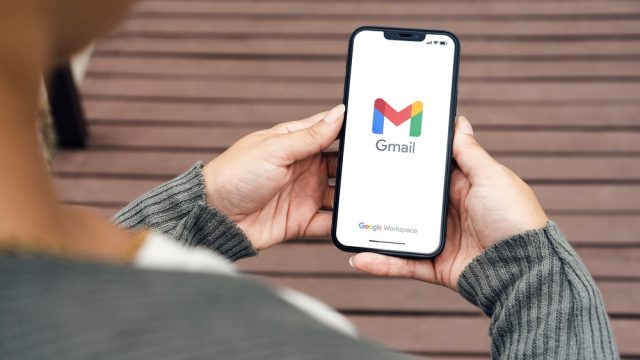Google Is Deleting More Email Accounts and Photos—How to Protect Yours

Keeping your digital assets safe is an essential part of modern life. After all, technology has made it so that our inboxes are as crucial as having a phone number, and the images we snap with our phones have replaced printed photo albums. Many people turn to services such as Gmail and other free offerings for their online needs. But if you use the popular service, you might want to take note after Google announced it will soon be deleting more email accounts and photos from across its lineup of products.
RELATED: These Common Passwords Can Be Cracked in Less Than 1 Minute, New Data Shows.
In emails sent to Gmail users starting last week, the tech giant warns that inactive accounts across its wide range of services including inboxes, photo storage, Google Docs, and others associated with them, will be wiped off their servers, Forbes reports. The notification points out that any accounts in danger have “not been used in at least 8 months” and will be deleted on Sept. 20, 2024, if steps aren’t taken to reactivate them.
The timeline presented by the warning appears to fly in the face of Google’s current inactive account policy, in which defines an inactive account as one “that has not been used within a 2-year period.” While the company clarifies that any accounts set up by businesses, schools, or other organizations are exempt from the policy, it says it “reserves the right to delete an inactive Google Account and its activity and data if you are inactive across Google for at least two years.”
The new move comes nearly two months after the company began an initial sweep of long-dormant accounts from its servers on Dec. 1, 2023. In a May 16 blog post by Ruth Kricheli, the company’s vice president of product management, reassurances were given that anyone affected would have plenty of advance warning from alerts sent to targeted accounts and the recovery email addresses associated with them.
“We are going to roll this out slowly and carefully, with plenty of notice,” Kricheli wrote. She went on to explain that “forgotten or unattended accounts often rely on old or re-used passwords that may have been compromised, haven’t had two-factor authentication set up, and receive fewer security checks by the user,” making them potential tools for hackers to commit identity theft or forward phishing messages.
According to the company’s policy, anyone who is concerned about losing a Google account due to inactivity can save it by logging in and completing any one of a number of small tasks. These include reading or sending an email, accessing Google Drive, or even simply watching a YouTube video or completing a Google web search.
In her initial post, Kricheli specified that “you will need to specifically sign in to Google Photos every two years to be considered active, which will ensure your photos and other content are not deleted.”
Those locked out of their accounts can also try to recover them using customer support. Anyone performing a digital decluttering can also do away with unwanted or old accounts by downloading any files and data before deleting them.
RELATED: For more up-to-date information, sign up for our daily newsletter.